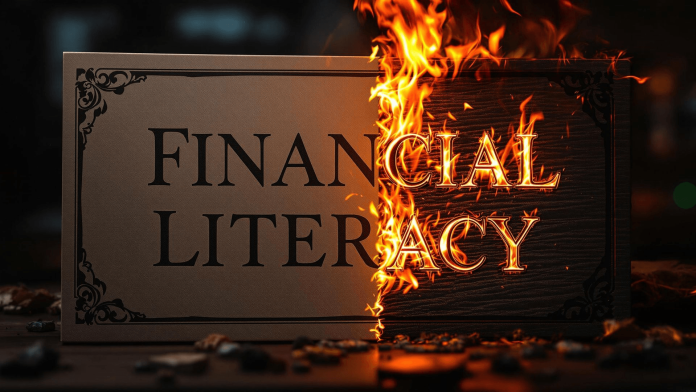This article should not be considered investment advice; it is purely the opinion of our editorial team.
For many, financial literacy comes not from structured education but from living through financial hardship. Those moments of balancing a meager income against mounting expenses are a masterclass in survival. While these experiences can teach resourcefulness and the value of hard work, they often fail to cover the broader principles of financial well-being.
What We Learned When We Were Broke
- How to Prioritize Needs Over Wants
Scarcity forces people to discern between essential and non-essential spending. It’s a tough but valuable skill, laying the foundation for disciplined financial behavior. - Stretching Every Dollar
Broke living teaches the art of frugality—seeking out sales, cutting recurring expenses, and avoiding unnecessary purchases. These habits create an appreciation for financial discipline. - Emergency Planning
While often learned too late, the importance of having an emergency fund becomes glaringly clear when unexpected expenses derail your finances.
What We Didn’t Learn
Survival-mode financial literacy can teach you how to get by, but it rarely provides the tools to build long-term stability or prosperity.
- Wealth-Building Strategies
Scarcity often leaves little room to explore wealth-building activities like saving for retirement, investing in appreciating assets, or creating multiple income streams. The focus tends to stay on immediate survival rather than long-term growth. - Understanding Inflation and Purchasing Power
While budgeting on limited income is critical, few people in financial hardship learn how to account for inflation and protect their earnings from eroding value over time. - Strategic Savings
Many people learn how to save reactively—putting away what’s left after expenses—but not proactively. Understanding how to plan for major expenses or retirement requires a shift from reaction to intention. - Using Cash Flow Effectively
Financial literacy gained in hardship often overlooks the importance of steady cash flow management. Strategies for balancing income and expenses beyond the next paycheck—like budgeting for seasonal changes or future needs—tend to be missed.
Why This Matters Now
In a time of economic uncertainty, financial literacy is more crucial than ever. For those who’ve lived through financial hardship, it’s not just about surviving another crisis—it’s about building resilience for the future.
- Adopt a Savings-First Mindset
Instead of focusing on spending what remains after expenses, prioritize savings as a non-negotiable expense. Setting aside even small amounts regularly can create a financial safety net over time. - Learn the Basics of Asset Building
While debt is often touted as a tool for financial leverage, focusing on savings, income diversification, and low-risk investments offers a more stable path toward security without the risks associated with borrowing. - Understand Long-Term Planning
Tools like sinking funds, retirement accounts, and emergency reserves are vital. These concepts don’t just protect against hardship—they provide freedom and opportunities in the future.
Building a Better Financial Future
For most of us, financial literacy began as a necessity during hard times. But it’s crucial to expand that foundation into a comprehensive understanding of financial stability and growth. By prioritizing savings, managing cash flow effectively, and planning for the long term, we can move beyond the lessons of scarcity to a future of abundance.
Let’s ensure the next generation learns these lessons before hardship strikes. Financial literacy shouldn’t be learned only when we’re broke—it’s a skill that benefits everyone, no matter their starting point.


